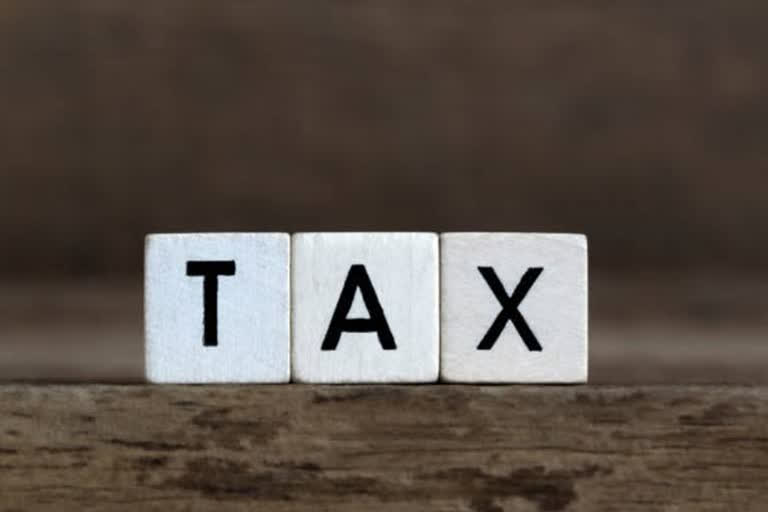New Delhi: International business bodies, whose members include global giants like Walmart, Amazon, Google, Netflix etc, have approached Finance Minister Nirmala Sitharaman for deferring of 2 per cent tax imposed on non-resident e-commerce companies by nine months due to the crisis triggered by COVID-19.
A group of nine business bodies including US India Business Council, Information Technology Industry Council, Japan Electronics and Information Technology Industries Association, Asia-Pacific MSME Trade coalition and DigitialEurope, have demanded consultation on the Equalisation Levy (2 per cent tax) imposed by the government in this fiscal year.
In a joint letter to the minister, the business bodies representing mostly American, European, Australian and Asian foreign companies mentioned commitment of G20 leaders including that of Prime Minister Narendra Modi for realizing a free, fair, nondiscriminatory, transparent, predictable, and stable trade and investment environment, and to keep global markets open.
"It is in the spirit of this international commitment that we write to respectfully request a formal stakeholder consultation on the expansion of the Equalisation Levy and a delay by at least nine months of the implementation of Section 165A of the Union Budget 2020," the joint letter said.
Read more:Govt must announce "Paycheque Protection Progarmme" for non-MSMEs: P Chidambaram
It said the Section 165A of the Budget significantly expands the scope of India's existing Equalisation Levy to establish a new, two per cent levy on the online sale of goods and services into India by non-resident e-commerce operators.
Non-resident e-commerce operators are those firms that sell goods and services to Indian residents online and collect their data for the business purpose but don't have presence in India that can be covered under tax net.
Several internet companies sell advertisement or products in India through a separate entity often registered in tax havens or foreign land.
The joint letter, which was also signed by Allied for Startups, Asia Internet Coalition, Australian Services Roundtable and US Chamber of Commerce, said the timeframe within which "expansive new measure" of imposing Equalisation Levy was approved and entered into force allowed for neither the dialogue nor the significant structural changes that would be necessary for impacted firms to effectively implement a levy of this scope and complexity.
"A delayed implementation would permit such a dialogue to take place and would play a meaningful role in ensuring that the Government of India can most effectively and equitably achieve its policy objectives," the letter said.
The global business bodies said that a delay would further underscore India's continued support for the ongoing, multilateral negotiations at the Organisation for Economic Cooperation and Development (OECD) on the taxation challenges arising from the digitalisation of the global economy.
The global trade bodies have also approached the United States Trade Representative to call for discussion on India's move to impose Equalisation Levy while the matter is still under discussion at international level.
The joint letter to Sitharaman said that present circumstances are exceptionally challenging globally for individuals, governments, and businesses and the current priority of governments around the world must be to mount the strongest possible economic and public health response to the outbreak of novel coronavirus.
"For all of us, India is a critical market in which many of our members are deeply invested, and many of our members have been designated as essential during the current crisis," the letter said.
Extend interest equalisation scheme for minimum two yrs: AEPC
India's apparel export industry has urged the Centre to extend the interest equalisation scheme for a minimum of two years at a rate of 5 per cent.
The scheme aims to boost exports, particularly from the MSME sector, by providing interest subvention rate on pre- and post-shipment credit basis.
In a letter to Commerce and Industry Minister Piyush Goyal, Apparel Export Promotion Council (AEPC) Chairman A. Sakthivel said: "Given the extremely volatile and uncertain cash flow situation of the apparel exporters, we request you to kindly announce continuity of the interest subvention scheme which expired on 31 March 2020."
"It is further requested that this enhanced 5 per cent 'Interest Equalisation Scheme' so far available to MSMEs may also kindly be extended to all the apparel exporters for at least two years up to 31 March 2022 to enable the industry to have affordable access to credit. In the absence of any announcement on this scheme, the banks are debiting the accounts of the exporters."
Besides, Sakthivel requested the Centre to include extension of packing credit and forward contract by 6 months without penal interest and waiver of penalty imposed on forward covers by some banks.
He also called for an increase in working capital limits by minimum 25 per cent without any additional collateral.
(PTI and IANS Report)



